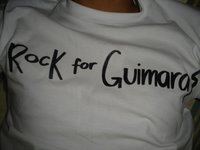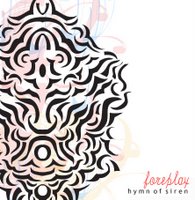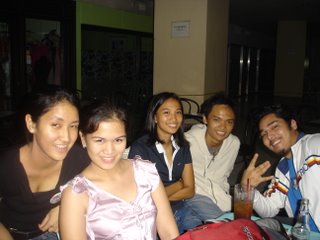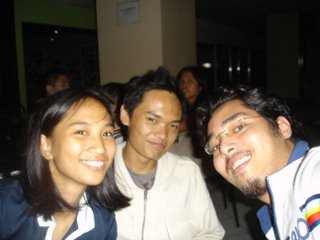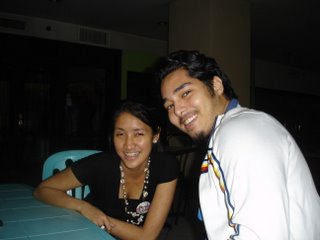A.C.THE "FLOETRY" of Anderson Cooper is a thing to hear. His voice is deep, its cadence rather casual. There’s a heart beating behind what may initially come across as monotony.
His clauses are short. “Ands” and “buts” are less prevalent that commas, double-dashes, and periods. The meanings behind two separate clauses speak for themselves through the similarities and the disparities between them. Self-evident. Conjunctions often unnecessary.
“On the outskirts of Baidoa, in a hovel of twigs, I watched the mother lift a kettle. Squatting, she shifted her weight from one foot to the other, pouring what little water she had left over her boy's head.His eye sockets were hollowed out, each rib clearly visible. The parents had already watched three boys die.
This was their last, he was 5 years old. He was just one boy, just one death—in Somalia it happened every day.”
He doesn’t want to editorialize. He stands behind facts, fully confident that the facts are preposterous as they are, opinions would be redundant to the ludicrous images on screen.
.....................Famine.
................................Poverty.
...........................................Illness.
..........Death.
..........What “but” could be added when a thin kid asks for food
.....................while smiling
..............................in front of the camera with a bloated
malnourished stomach?
..........What sentiments conveyed through dramatic
.....................statements are needed with picture of houses
..............................destroyed,
mothers crying
...........over the loss of their living rooms?
...........What more does one need to say
....................when the fear in people’s eyes
.............................is lucid? They twitch
as they sit on the subway
....................bombed
.............................the day before.
...........What justification, explanation, reason
....................needs to be given
.............................when he is overwhelmed by
irresponsibility and inhumanity
....................as he
challenges.............................a politician
on live television?
....................(It’s normally their fault
.............................anyway, right?)
Perhaps that SHOULD be his job. He takes on the responsibility. The burden. Not just a relater of facts and figures but a demander for answers, for the job truly is a service.
Objectivity is not human. A human Cooper clearly is, and for humans he delivers the stories.
And why?
To make us care. To really make us feel provoked. And for us to make choices about certain things that will lead to solutions to the very problems he presents.
“The pain was all around: houses, whole towns, nothing but rubble, roofs blown off or burnt down, walls crumbling, half-starved dogs skulking in the streets, women running for cover clutching the tiny hands of their kids.
And the smells: Charcoal fires, cooking fuel, mud, blood, human waste, musty and sweet; the smells stick in your throat, weave into your clothes—they become part of the fabric.
When I first arrived in Sarajevo, I wore my flak jacket all the time, slept with it near my pillow. Now I hardly ever put it on.
You're surrounded by people who don't have Kevlar vests and armored cars. You're in their homes, asking for their stories.
You want them to risk exposing themselves to you. You can't ask that if you're not willing to expose yourself, feel the closeness of another, the sense of loss in their embrace.”
He sheds light on the things we like to conveniently turn away from.
Why?
Well, perhaps it’s because, being a son of high society and celebrity, he’s grown up in a situation where turning away would’ve been the easy and an acceptable thing to do.
Trust fund kids get a bad wrap these days. Party-goers. At least many of them.
There’s the pseudo-recording artist whose previous claim to fame was a brainless reality show and a video of her sucking another rich dude’s “manlihood.”
The high society more close to home sees bums who go on prolonged vacations to Bora and weddings in Paris while they only barely pass for having jobs, calling themselves artists or photographers—talent they don’t need for their clients are their wealthy
kabarkadas. Convenient lives they have in their pseudo-Manhattan lofts in Makati.
Acts of charity are done in the “radical chic” mode, to appear like the brown Angelina, to appear cool by appearing to care about people who are alien to them, of another planet—the scapegoats, the whores of false high society concern.
Cooper chose the rout of being relevant. Picked up a camera and sent himself to war-torn areas, making his own reports and giving them to any news agency that were too low-budget or too chicken-shit to send one of their own. Some work their way up, starting from the bottom of the ladder. Cooper, in a sense, carried the ladder up from the basement before making a single step up.
“On the outskirts of a town, along the side of a road, a bus has overturned. A half-dozen bodies are splayed in a ditch.Nearby, a pickup has run off the road. It is silent except for the flies buzzing and the vultures circling overhead, waiting for me to leave.
From the truck's windshield, a man's torso sticks straight out, his legs emerge from the open passenger door. From a distance he appears to be moving. Up close, I realize it's only maggots.
I couldn't tell you if he was a Hutu or a Tutsi, couldn't tell you about the rest of the dead lying in the ditch. Did it really even matter?
There had been dozens of bodies that day, dozens of deaths. Each one a mystery, a tragedy to someone.
I stopped trying to make sense of it all. We are trained to ask why. Why did he do it? Why did he have to die? I no longer need to ask those questions."And so he got his show, now the book, the ensuing fame, the groupies, and probably more than a few cynical frowns of haters of substance celebrity. But let us not forget that the celebrity was earned through his work. And even during this ride, which sees him in Comedy Central,
People,
Details, and Gawker.com just as much as on CNN, he still injects himself in places like Lebanon during the month of war, and immediately to London after that to cover a terrorist apprehension.
Rumors of sexuality and statements of physical attractiveness unfortunately come with the territory of gaining a reputation of any sort—telling perhaps of the insecurity of society, one that dictates us to cloud substance in shallowness.
Credibility is hard to darken, though. Just in case we think of him as a one-hit wonder, a fame-hungry hero, a brave son of a bitch riding his 15 minutes, or an asshole looking for an Emmy or a Pulitzer, Cooper goes back to places like the slums of New Orleans (at least once every month or so), making sure the story which has passed its climax and wintered in ratings hype, still comes to…well…not a resolution…but to something, somewhere better, somehow.
One hesitates to prophesize a happy ending for however great that city rises after, the memory of that hurricane will forever be haunting.
It haunts him. He wants it to haunt us all.
We’ll move on but we won’t forget. We must not forget. Cooper won’t allow us to, at least not in the near future.
..........The mistakes.
....................The wrong.
..............................The inadequate.
The powerless.
..........The at-fault.
....................The lost.
And the loss.
He cares. We all care. He just wants us to remind us to continue caring. He reminds us that he is just one of us—human—vulnerable, in search for justice, righteousness, peace, and happiness.
*Excerpts taken from articles written by Anderson Cooper for details.*Check out the Reporter's Notebook of A.C............. Where were you on 9/11?At Home. In my room. It was evening. Was watching MTV Cribs (I was something like 15). Turned to CNN just in time to see the second plane. I didn't sleep. The world would never be the same.
